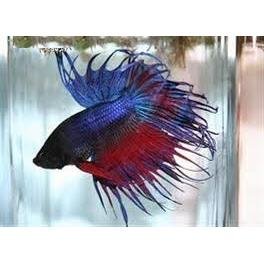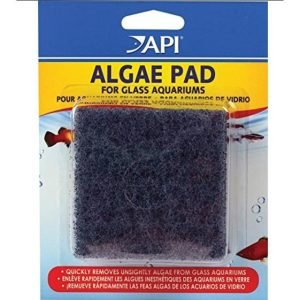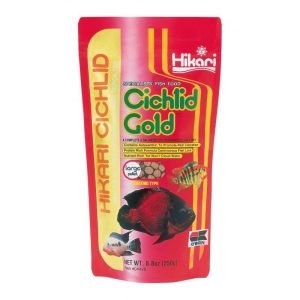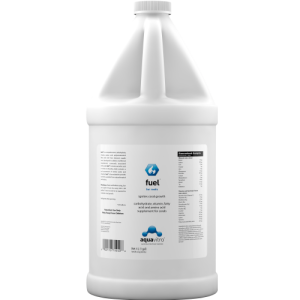Crowntail siamese fighter
R115.00
Before ordering live fish, please click to check if we can safely ship livestock to your location.
Please note that fish image is a representation of what the fish might look like as an adult.
The Crown Tail Siamese Fighter has a striking, elaborate spiky tail and fins that differentiates it from other Bettas. These fish have been bred over the years to enhance the fins and remarkable variety of colors of the males, as well as making them increasingly combative. The Crowntail was first bred by Indonesian breeder Achmad Yusuf in 1997 when he named the fish ‘Cupang Serit’ at an International Betta Congress. The Crowntail originates from the shallow rice paddies where its name was coined from its visibly spiky tail and caudal fins.
The Siamese fighting fish (Betta splendens), also known as the betta, is a popular fish for aquarists. Their natural habitats are diverse and warm basins in Thailand, Indonesia, and Vietnam. They are the national fish of Thailand. Like gouramis, they have a unique labyrinth breathing organ that allows them to take in oxygen from the air in addition to their gills. The reason the betta is known as the Siamese fighting fish is because of the male’s acute aggressiveness. This was heightened from selective breeding in the 1800s and is still a part of their genetic makeup.
They are called Siamese fighting fish because they are a native of Siam (now known as Thailand) and fighting fish because they used to fight! Known as a plakat, wild bettas are a tearing and biting fish, which were bred for their fighting tendencies. People of South Asia used to collect Siamese fighting fish as a hobby, from rice paddies, and then conduct fish fights. This pastime has fostered aggressive behavioral patterns with all bettas.
Click for all Fancy Betta fish at Rebel Pets
Behavior
Bettas are a member of the gourami family and are known to be highly territorial. Males in particular are prone to high levels of aggression and will attack each other if housed in the same tank. If there is no means of escape, this will usually result in the death of one or both of the fish. Female bettas can also become territorial towards each other if they are housed in too small an aquarium. It is typically not recommended to keep male and female bettas together, except temporarily for breeding purposes which should always be undertaken with caution.
Tank Conditions
Avoid placing your betta tank in direct sunlight, like near a window. Lots of noise will also stress your fish, so the best place for your tank is a dimmed and quiet part of your home. Betta Fish really enjoy light, and for that reason, the aquarium must be well lit. However intensive lighting can promote the growth of algae, to avoid this try using luminescent or LED lamps.
Never fill your tank to the maximum volume. Betta fish need access to the water’s surface to gulp air using their unique labyrinth organ. The labyrinth organ allows them to extract oxygen from the air and not just the water via their gills. This is why bettas don’t require air pumps. Also make sure you have a lid on your tank because bettas (especially females) are great jumpers, and may leap right out of your tank.
Betta fish are used to living in tropical waters in Asia, so a filter and heater are essential. A normal internal adjustable power filter is an ideal solution but sponge filters will do. Make sure there are quiet areas (no flow or very slow flow) in your tank as the long fins of males make it difficult to be good swimmers.
Use a fine substrate that doesn’t have any sharp edges so they don’t scrape their bodies as they are susceptible to infection in their flowing fins.
Compatibility
Bettas rarely get along with each other, let alone other species. Male Bettas are very territorial and often end up fighting each other and should never be kept together in the same tank. Alternatively, you can get two female Bettas and a male. It’s much easier to say what fish should be avoided rather than name the ones they can be kept with. First, definitely cross all peaceful and tiny fish off the list right away.
Fish that have large flowing tails should also be avoided like Guppies. Other fish that should be avoided are Oscars, Parrotfish, Killifish or Acaras, to name just a few.
Compatible fish include Black Tetras, Bloodfin Tetras, Catfish and Rasboras. They can play nice with certain tank mates that are non-aggressive and do not possess any bright colors or long fins.
Feeding
To keep them looking colorful and bright however, a healthy and consistent diet is required. Betta Fish are carnivores that live up to their name. Given the popularity of Bettas, finding suitable foods is not a problem as there are lots of Betta specific fish foods; simply search Rebel Pets for Betta Food. If you want to treat them, their diet can also include both frozen and dry foods such as brine shrimp or bloodworms – by far the most popular choices for Bettas.
Because these fish are so small yet so active, they can often end up eating more than they can digest. If you notice that your fish looks exhausted or starts swimming in a strange way, don’t feed them for a day. To avoid overfeeding pay close attention to how much you feed Bettas. Normally, adults should be fed twice a day and the portion should be about a pinch or enough to fit on the tip of a knife. They should be able to eat all their feed in 5 minutes.
Care
Although Bettas are true warriors, they are not invincible. They can get sick from time to time but looking after their tank will help minimize the risk. Sudden or frequent changes in temperature, can hurt their health (the reason their tank should not be in direct sunlight). The most common issue is the infection that starts to develop after a cut. It’s usually a sharp substrate that causes this, so make sure that it’s smooth and safe for the fish. The same goes for any decorations that you put in the tank.
Most other diseases develop when the water is not kept clean. For example, fin rot is common with these fish. This is a bacterial infection that will cause inflammation and irritation.
Fin rot can also be caused by introducing bacteria into the tank. It can end up in the aquarium with new aquarium equipment that you bought from someone or a poorly cleaned substrate.
Other diseases are overfeeding, white spot disease, lymphocystis, and hypodynamia.
Ammonia should ideally be zero parts per million (ppm).
Nitrate should be less than 40 parts per million (ppm).
Nitrite should ideally be zero parts per million (ppm).
| Category | Rating |
|---|---|
| Adult Size: | 5 – 8 cm |
| Aquarist Experience Level: | Beginner to Intermediate |
| Minimum Tank Size: | 20 litres, 10 litres absolute minimum |
| Temperament: | Aggressive, Territorial and fin nippers |
| Tank Level: | Top dweller |
| Diet: | Carnivores |
| Aquarium Hardiness: | Hardy |
| Lifespan: | 3 Years |
| Water Flow: | Low |
| Temperature: | 24 to 27°C |
| pH: | 6 – 8 |
| Hardness: |
Shipping Countries: South Africa
Shipping States: Gauteng (South Africa)
Specification: Crowntail siamese fighter
| Weight | 0.25 kg |
|---|---|
| Dimensions | 100 × 100 × 100 cm |
User Reviews
Be the first to review “Crowntail siamese fighter”
You must be logged in to post a review.
Product Enquiry

R115.00




















There are no reviews yet.